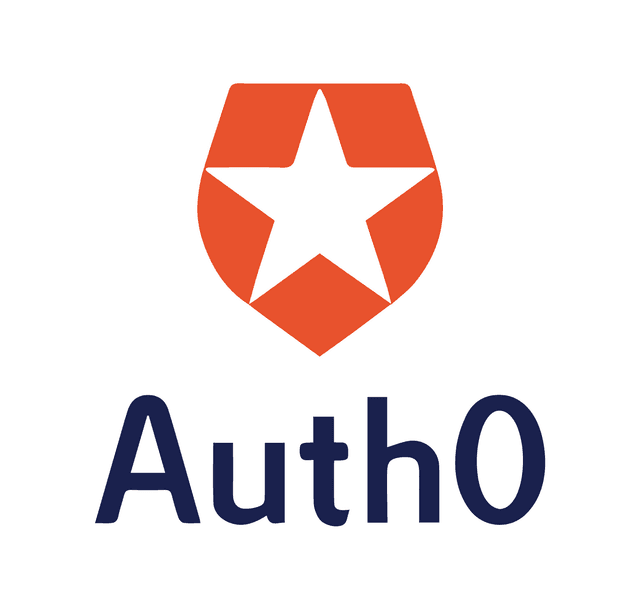Auth0 by Okta vs. Auth.js
Auth0 by Okta
Auth0 is an identity and access management (IAM) platform designed to simplify authentication and authorization for applications. It provides a flexible solution that allows developers to implement secure login systems without having to build them from the ground up. Auth0 supports various authentication methods, including username-password credentials, social logins (like Google, Facebook, and GitHub), enterprise identity providers (such as Active Directory and SAML-based systems), and passwordless options. The platform is highly adaptable, offering over 30 software development kits (SDKs) that cater to a wide range of languages and frameworks—JavaScript, Python, .NET, iOS, Android, and more. This makes integration straightforward regardless of the tech stack. Beyond basic authentication, Auth0 offers advanced features like multi-factor authentication (MFA), single sign-on (SSO), and fine-grained authorization. These tools enable organizations to enforce complex access control polici...
Auth.js
Formerly known as NextAuth. It's is an open-source authentication library originally built for NextJS. Auth.js is free to use and comes with over 80 integrations for various third-party identity providers such as Google, Facebook, Auth0, Apple etc. You can use it with your own database if you choose to. It works with MySQL, Postgres, MSSQL and MongoDB. Auth.js is compatible with Next.js, SvelteKit and SolidStart as of March 2024.
Reviews
Reviewed on 2/25/2025
Auth0 is Okta's B2C identity management solution. It's an all-in-one package, with social login, bot detection, UI components, anonymous users, single-sign-on, MFA etc. The free tier comes with 7,500 MAUs. That said, it's relatively expensive and 20,000 MAUs will cost you $1400/month.
Reviews
| Item | Votes | Upvote |
|---|---|---|
| Offers passwordless, social, and multifactor auth | 1 | |
| Extensive documentation and community support | 1 | |
| Breach detection and brute-force protection | 1 |
| Item | Votes | Upvote |
|---|---|---|
| Free tier has restrictions on active users and features | 1 | |
| Higher tiers can be expensive | 1 |
| Item | Votes | Upvote |
|---|---|---|
| No pros yet, would you like to add one? | ||
| Item | Votes | Upvote |
|---|---|---|
| No cons yet, would you like to add one? | ||
Frequently Asked Questions
Auth0 by Okta is a comprehensive identity management solution that offers a wide array of features including social login, bot detection, UI components, anonymous users, single-sign-on, and multi-factor authentication. It is designed to handle large-scale applications but comes at a relatively high cost, with 20,000 MAUs costing $1400/month. On the other hand, Auth.js is an open-source authentication library originally built for Next.js and is completely free to use. While it supports over 80 integrations and can be used with various databases like MySQL, Postgres, MSSQL, and MongoDB, it may require more configuration and maintenance effort. Therefore, if budget is a constraint and you are comfortable with some additional setup, Auth.js could be a better option for large-scale applications. Otherwise, Auth0 provides a more out-of-the-box solution.
For small to medium-sized businesses, cost-effectiveness is a crucial factor. Auth.js, being an open-source library, is free to use, making it a highly cost-effective option. It also offers a wide range of integrations and is compatible with various databases, providing flexibility for different types of applications. Auth0, on the other hand, offers a free tier with 7,500 MAUs but becomes relatively expensive as user numbers grow, costing $1400/month for 20,000 MAUs. Therefore, for small to medium-sized businesses, Auth.js is generally more cost-effective unless the advanced features and ease of use offered by Auth0 are a necessity.
Auth.js offers over 80 integrations for various third-party identity providers such as Google, Facebook, Auth0, and Apple. This extensive range makes it highly versatile for different application needs. Auth0 also supports multiple third-party integrations and offers comprehensive features like social login, bot detection, and multi-factor authentication. However, if the sheer number of integrations is the primary concern, Auth.js has a slight edge with its wide variety of supported identity providers.
Auth0 is known for its user-friendly interface and comprehensive package that includes social login, bot detection, UI components, anonymous users, single-sign-on, and multi-factor authentication. This makes it relatively easier to set up and use, especially for developers looking for an out-of-the-box solution. Auth.js, being an open-source library, may require more configuration and manual setup, especially when integrating with various databases and third-party identity providers. Therefore, Auth0 generally offers a smoother and quicker setup experience compared to Auth.js.
Auth0 by Okta is an identity and access management (IAM) platform designed to simplify authentication and authorization for applications. It provides a flexible solution that allows developers to implement secure login systems without having to build them from scratch. Auth0 supports various authentication methods, including username-password credentials, social logins, enterprise identity providers, and passwordless options.
Pros of Auth0 by Okta include offering passwordless, social, and multifactor authentication, extensive documentation and community support, and features like breach detection and brute-force protection. On the downside, the free tier has restrictions on active users and features, and higher tiers can be expensive.
Auth0 by Okta offers a wide range of features including multi-factor authentication (MFA), single sign-on (SSO), fine-grained authorization, user provisioning, directory synchronization, and support for various use cases such as B2B, B2C, and B2E. It also provides over 30 software development kits (SDKs) for different programming languages and frameworks.
Auth0 by Okta supports developers by providing extensive documentation, community support, and a developer-first focus. The platform's extensibility allows developers to customize authentication flows, implement rules for conditional access, and integrate third-party services, making it adaptable to various tech stacks.
Yes, Auth0 by Okta is designed with scalability in mind, making it suitable for both startups and large enterprises. It addresses enterprise needs through features like user provisioning, directory synchronization, and support for complex access control policies.
Auth.js, formerly known as NextAuth, is an open-source authentication library originally built for NextJS. It is free to use and offers over 80 integrations for various third-party identity providers such as Google, Facebook, Auth0, and Apple. Auth.js can also be used with your own database, supporting MySQL, Postgres, MSSQL, and MongoDB.
As of March 2024, Auth.js is compatible with Next.js, SvelteKit, and SolidStart.
Yes, you can use Auth.js with your own database. It supports MySQL, Postgres, MSSQL, and MongoDB.
Auth.js offers a variety of features including over 80 integrations with third-party identity providers like Google, Facebook, Auth0, and Apple. It is also compatible with multiple platforms such as Next.js, SvelteKit, and SolidStart, and supports various databases including MySQL, Postgres, MSSQL, and MongoDB.




















